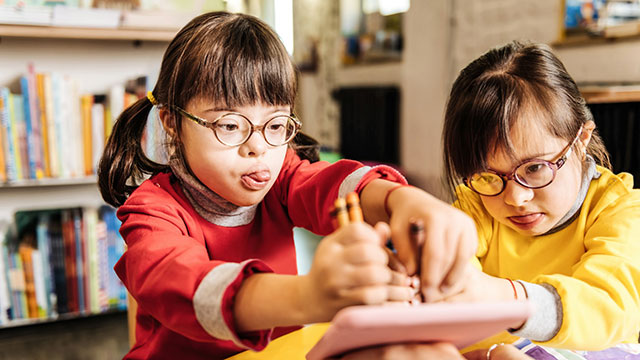Celebrating diversity must include celebrating those with Down syndrome
 While we love to promote the idea of diversity in Canada, the reality is that we rarely embrace it and often reject it altogether. This rejection is felt most viscerally by human beings with Down syndrome (Trisomy 21), a condition in which a person has an extra chromosome.
While we love to promote the idea of diversity in Canada, the reality is that we rarely embrace it and often reject it altogether. This rejection is felt most viscerally by human beings with Down syndrome (Trisomy 21), a condition in which a person has an extra chromosome.
When given a prenatal diagnosis of Down syndrome, the vast majority of parents will hear the words “I’m so sorry,” followed by advice to terminate and try again.
Although Canadian statistics on abortion are vague at best, international studies consistently report that as many as 90 percent of pre-born children diagnosed with Down syndrome are aborted.
In Iceland, the news broke a few years ago that they had basically eliminated Down syndrome in that country. This was not through medical developments or treatments but through the abortion of babies suspected to have Down syndrome. I use the term “suspected” because there are numerous instances of false positives, as evidenced by individuals who opted to proceed with the pregnancy and subsequently had a child without Down syndrome.
| Related Stories |
| New app helps family doctors care for adults with disabilities
|
| “I am a man with Down syndrome and my life is worth living”
|
The irony of a culture that promotes diversity while at the same time having the ability to terminate the majority of those with Down syndrome cannot be ignored. In our desire to create a “perfect” society we are supporting a legal construct that allows for the selective termination of those who we deem not quite right.
What does this reality say about how we view people who are different in our society? Would those who choose abortion for their children feel that other people with differences or disabilities should not be alive either?
Having a doctor say, “I’m so sorry,” immediately sets the tone that you are facing a negative situation, a situation where someone feels sorry for you. Doctors have a type of authority and knowledge that we tend to rely on – if they say something should be done, we generally try to take that advice. But should we feel sorry for people with differences of ability?
We tend to assume that if we are healthy and able-bodied, anything less would be a terrible way to live. If you’ve ever spent time with a broken arm, on crutches, or even a really bad cold, you can quickly lose patience with the limitations that come with such conditions.
But genetic conditions, disabilities, or traits such as those associated with Down syndrome do nothing to devalue a person. Every individual is created in the image of the creator, possessing inherent dignity and worth as a result. We learn in Genesis that God made man and woman in his image, different but equal in value. Our goal should be to view all people in this way – different, but equal in value and worth.
This is crucial because the tone of our conversations has a huge impact on whether people feel accepted, and how others feel about accepting them.
Discussions concerning human rights and human value should never be rooted in how ‘perfect’ someone is. Instead, they should be based on the fact that everyone has intrinsic value and the right to live. Every human being has purpose, whether we can tell what that purpose is at a certain point in time or not.
Embracing this perspective fosters a culture of inclusion and respect, where differences are celebrated rather than stigmatized.
Anna Nienhuis works with We Need a Law, a national grassroots campaign advocating for legal restrictions on abortion, including the use of abortion in cases of fetal abnormalities.
For interview requests, click here.
The opinions expressed by our columnists and contributors are theirs alone and do not inherently or expressly reflect the views of our publication.
© Troy Media
Troy Media is an editorial content provider to media outlets and its own hosted community news outlets across Canada.



